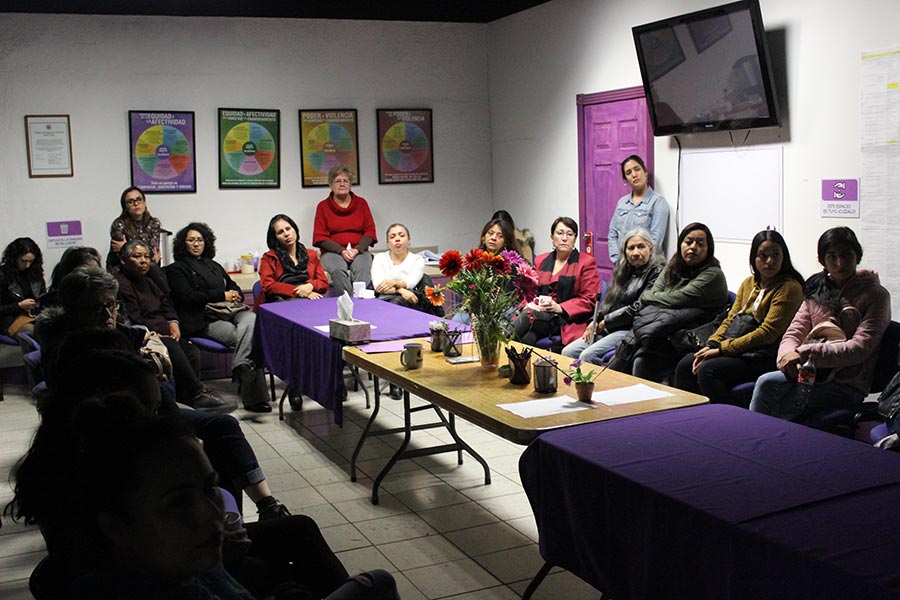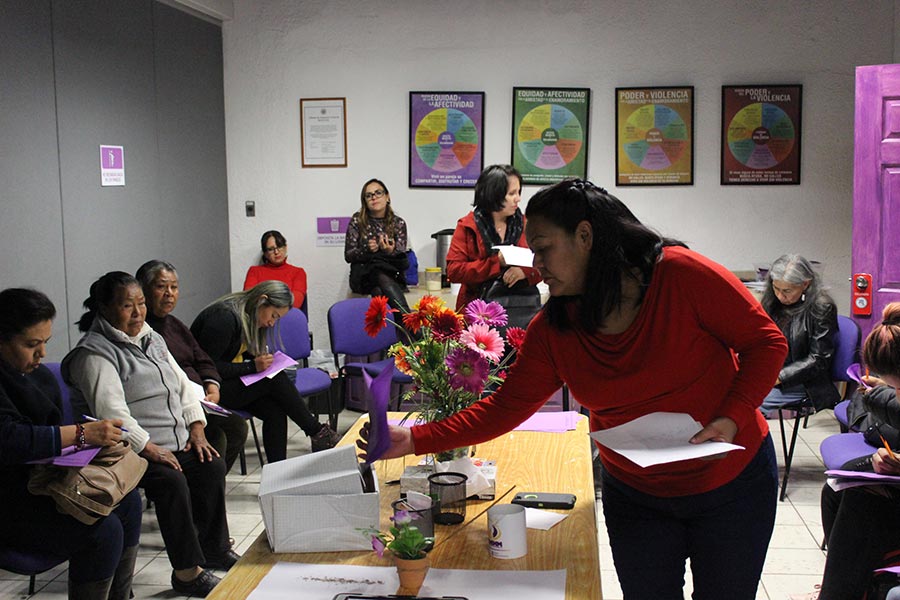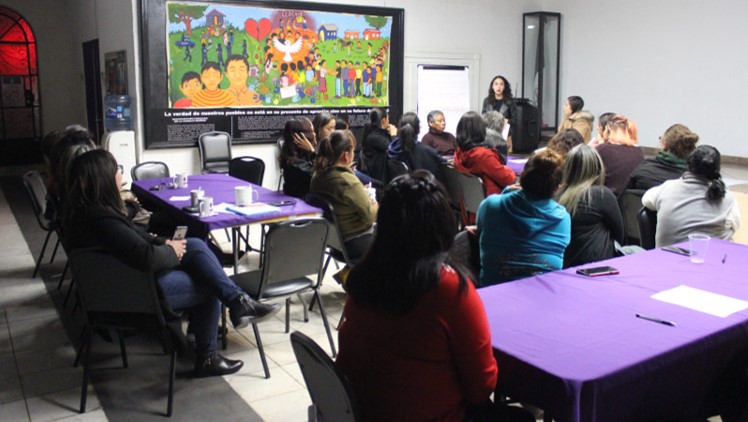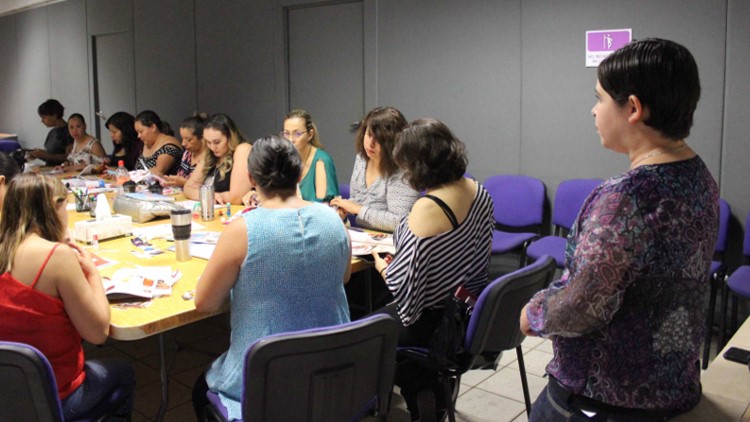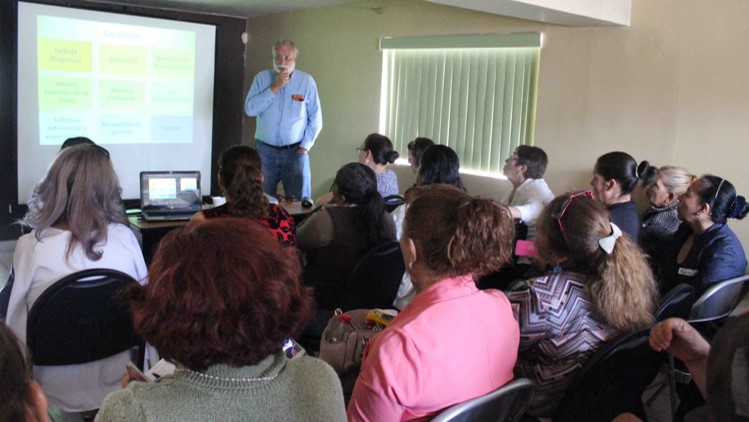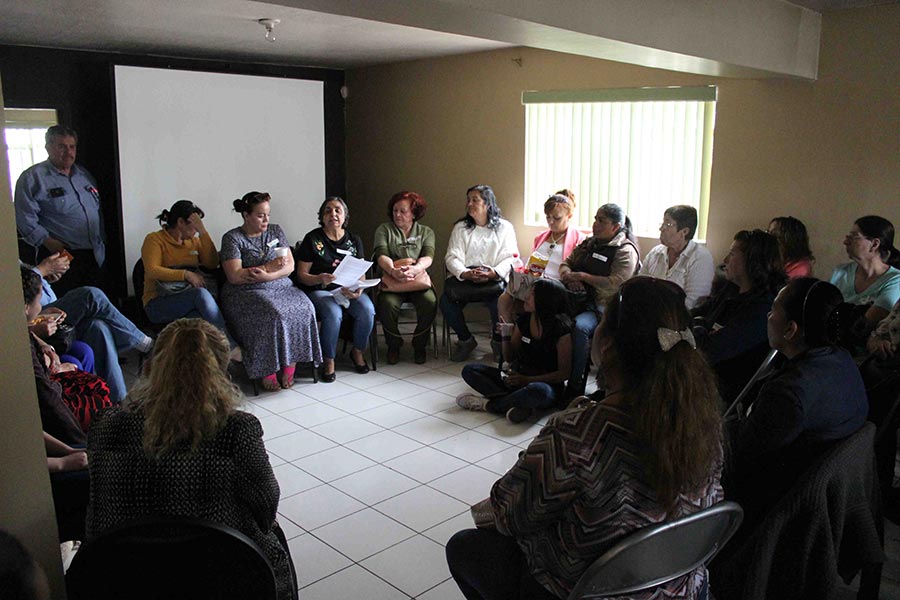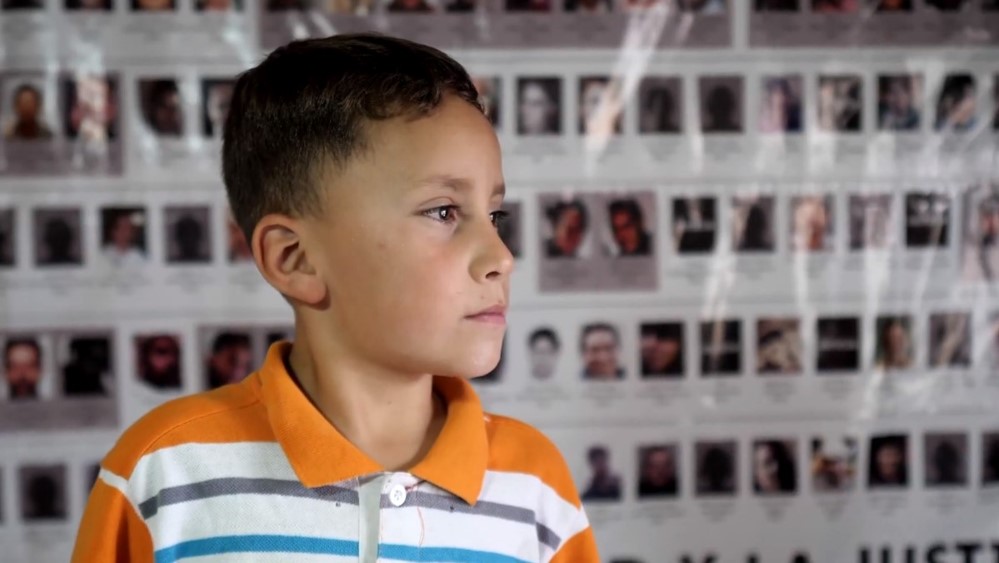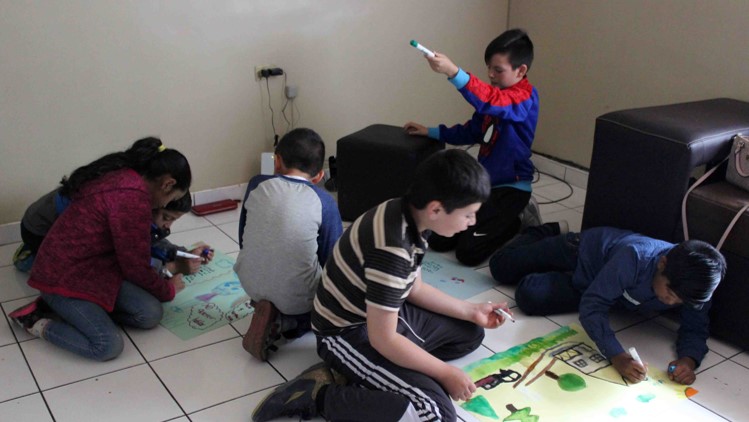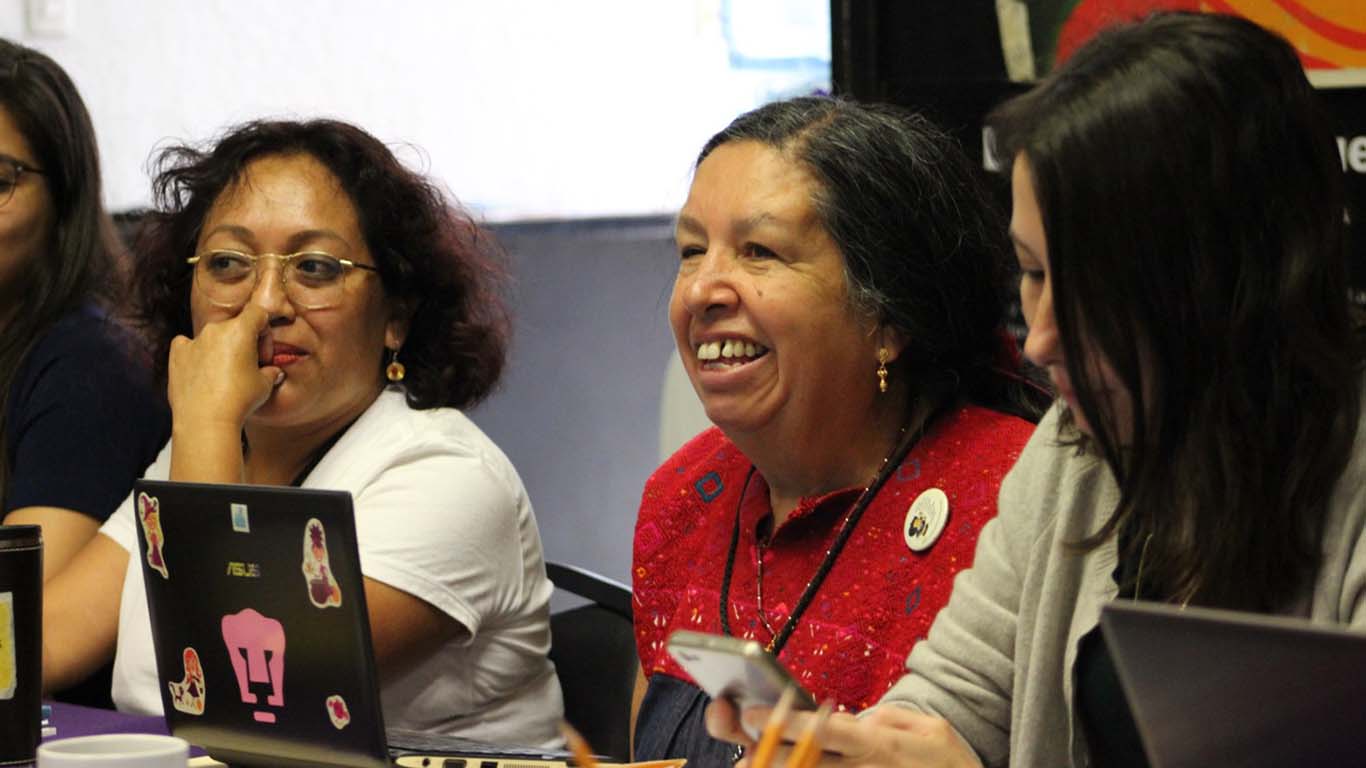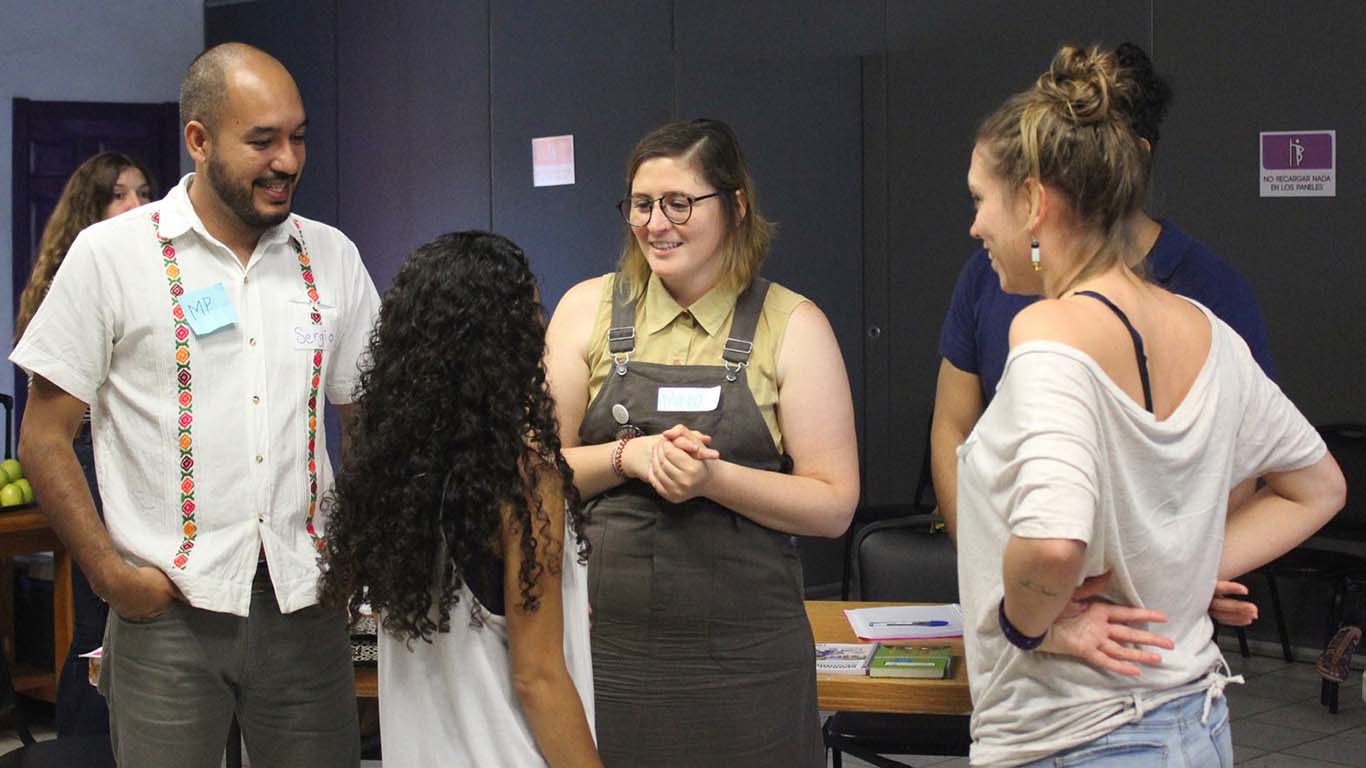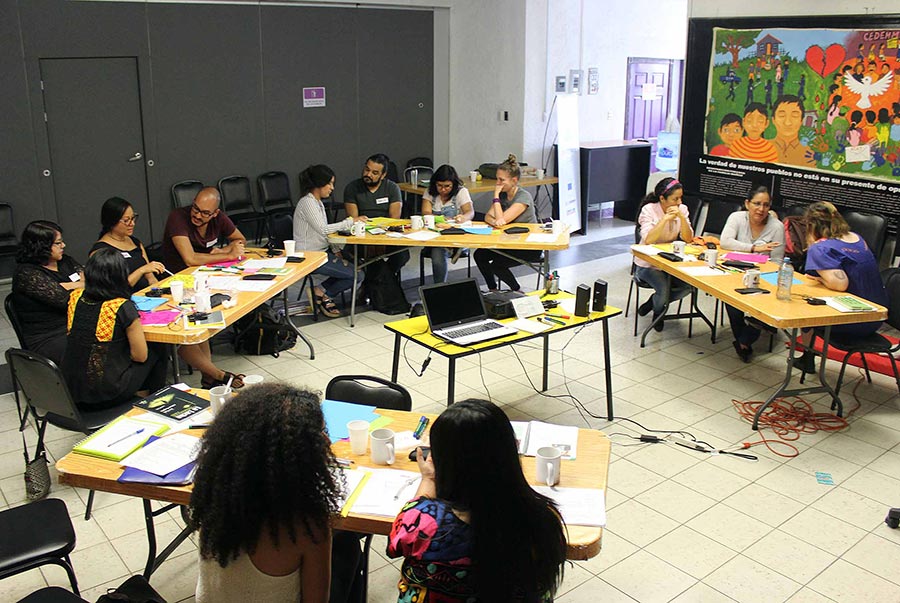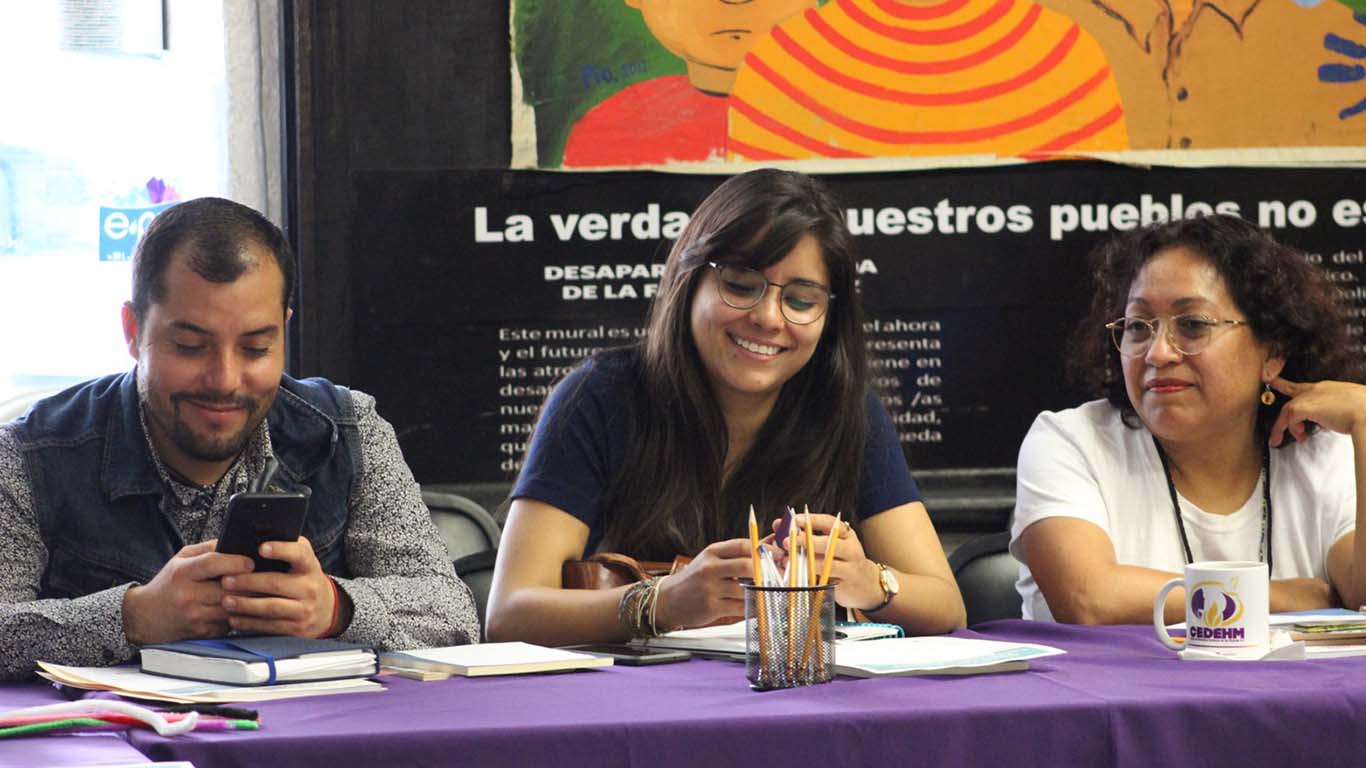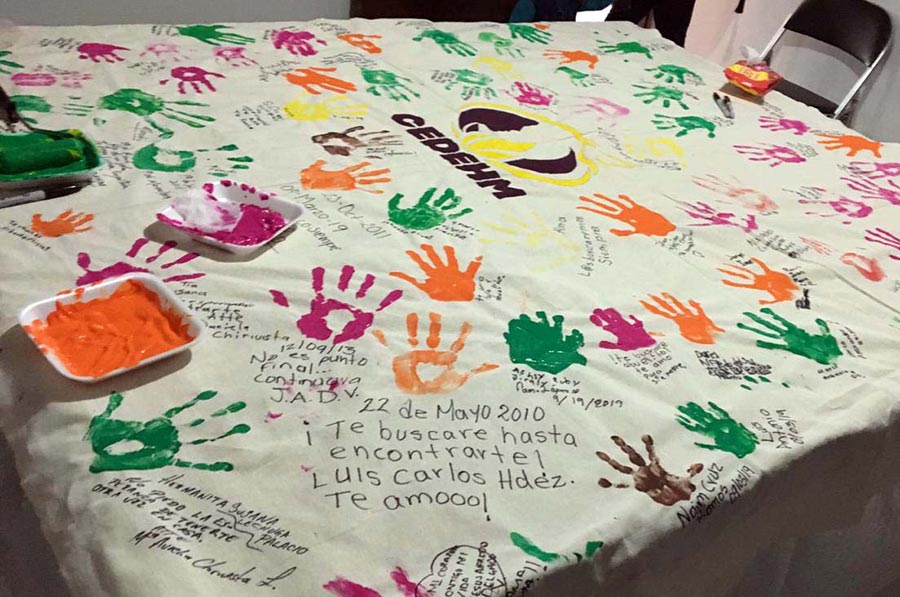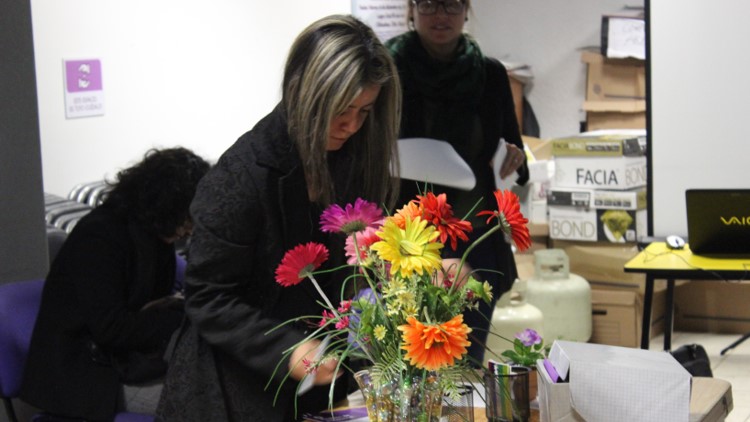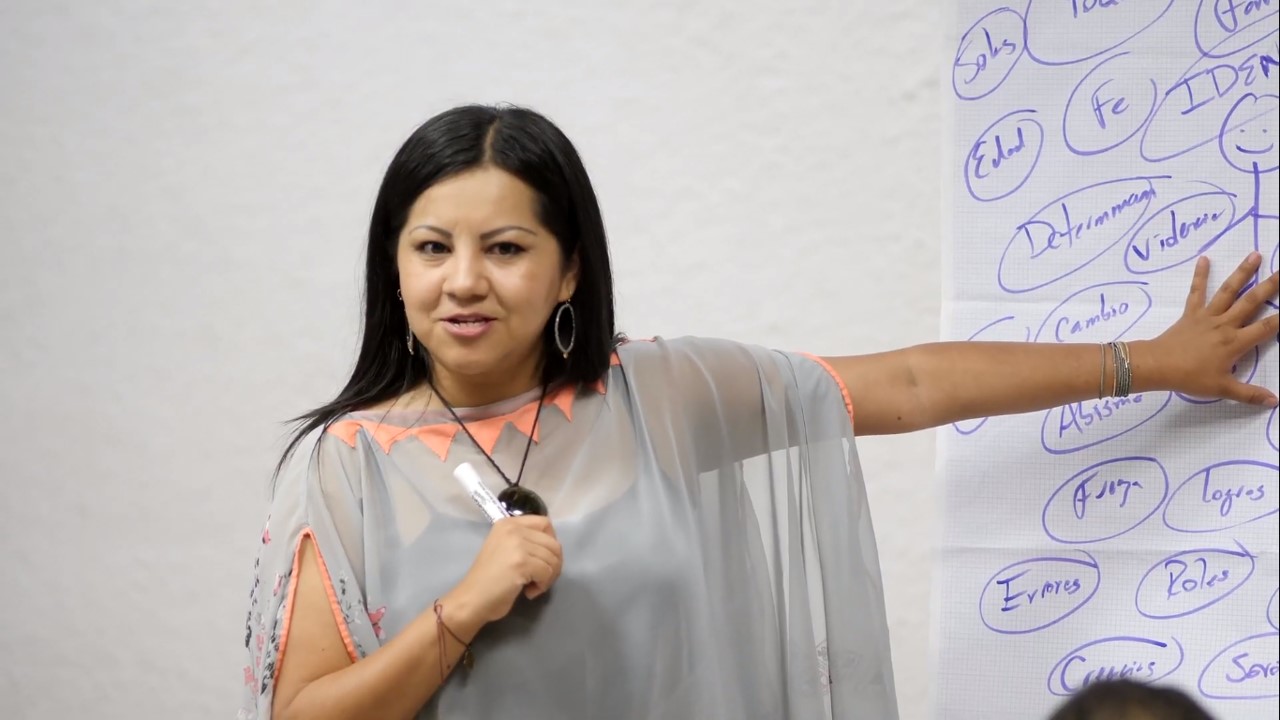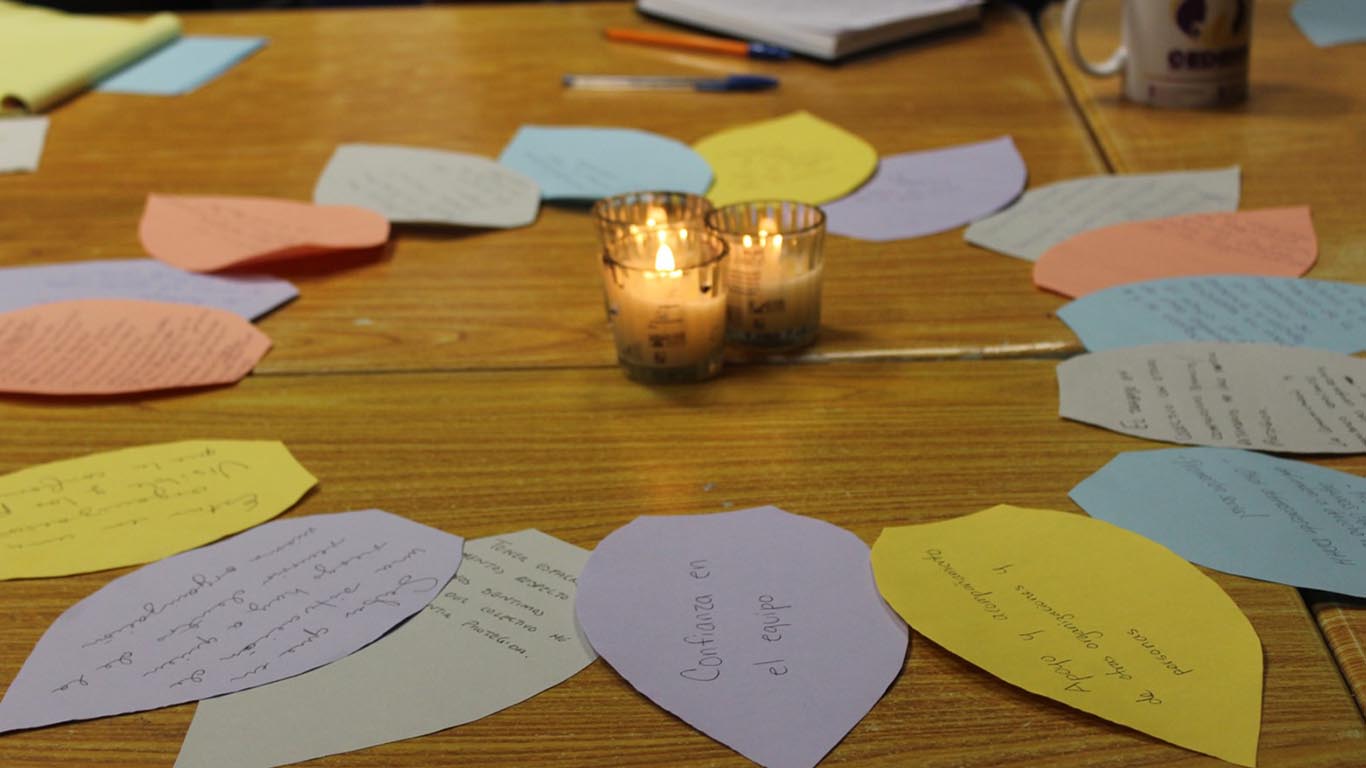As part of the comprehensive accompaniment to women and their sons and daughters, we provide individual, family, and group psychotherapeutic attention processes. Through individual and family accompaniment, women, adolescents, girls and boys, victims of family and/or sexual violence manage to recover from their emotional and psychological effects caused by the various violence experienced, seeking their emotional strengthening to prepare and face the different stages of the legal processes through which their cases usually go through.
The group processes or “Groups of Reflection” aim to reflect on what it is like to be a Mexican woman, adolescent, girl in a context of structural and political violence, as well as on social constructs, hegemonic and patriarchal structures, feminism in Latin America, human rights, types of violence and modalities. The reflection group contributes to the strengthening of collective identity and the non-privatization of violence.
These spaces are characterized by their trustworthiness and respect for diversity, and aim to have women identify violence in its different forms, stop it, and recover from the damage caused by it. Reflection groups promote women’s empowerment through awareness raising of gender conditions that give rise to family violence, as well as the ways in which it manifests itself.
Gradually, women participants pose possible ways to end violence. Finally, they eventually clearly identify the emotional and psychological consequences of it. Because of their characteristics, these groups are an ideal space for attendees to draw conclusions on how to recover from such effects.
We provide individual, family, and community care to people who request it and who suffer the disappearance of a loved one, in order to strengthen their emotional resources that allow them to face the search for truth and justice. Community psychosocial accompaniments are provided according to three age groups: girls and boys, adolescents and young people, adults and seniors.
We maintain a permanent process of psychosocial accompaniment to the collective of families with missing persons, with an age and gender approach. This process contributes to the consolidation of the sense of collectivity and the analysis of the socio-political context when defining and enunciating the causes behind the disappearance of people. It has therapeutic effects that decrease emotional suffering; promote the reconstruction of family ties and social ties; promote the development of individual potentialities; and allow the restoration of the rights of family members.
We accompany human rights defenders who are at risk, providing individual or collective accompaniments, seeking to promote self-care that allows defenders to reinforce their personal strength; prevent difficulties, tiredness, and emotional wear and tear; strengthen personal safety and self-esteem; facilitate the expression of needs and improve quality of life.
As well, protection mechanisms are sought that allow them to remain within the defense of human rights in safer ways.
We are a pioneer organization in the incorporation of psychological expertise with a gender perspective. Psychological expertise in cases of gender-based violence is an innovative way to show the emotional and psychological harm that violence has on women, girls, and boys. They establish a causal link between violence and the effects of violence and highlight psychological violence.
Thanks to the evidence that these surveys contribute, favorable sentences have been obtained for women, their daughters and sons, in various cases of family violence. The surveys document, with particular emphasis, psychological violence and its consequences on victims, which was previously invisible in legal processes.



